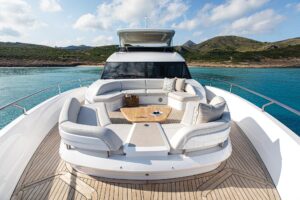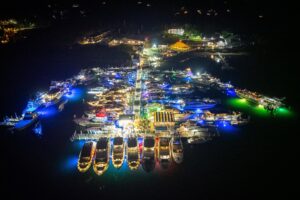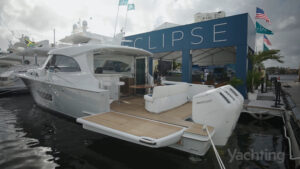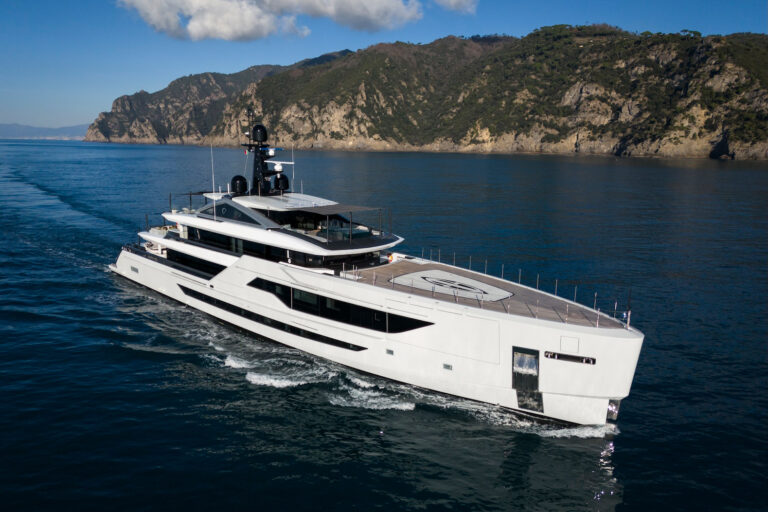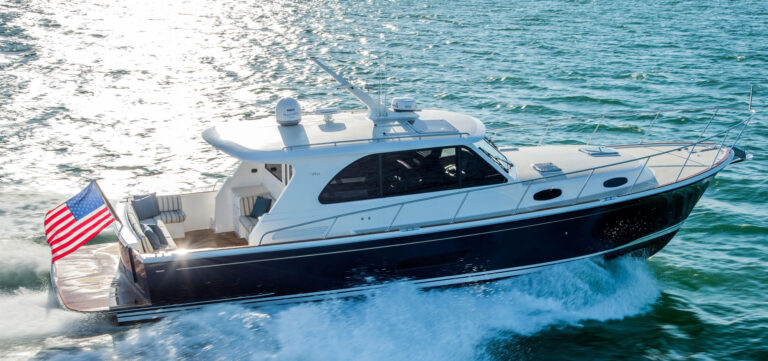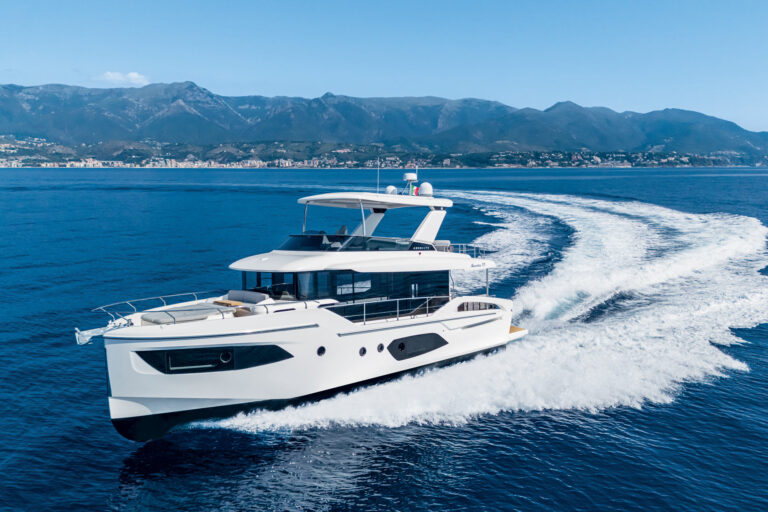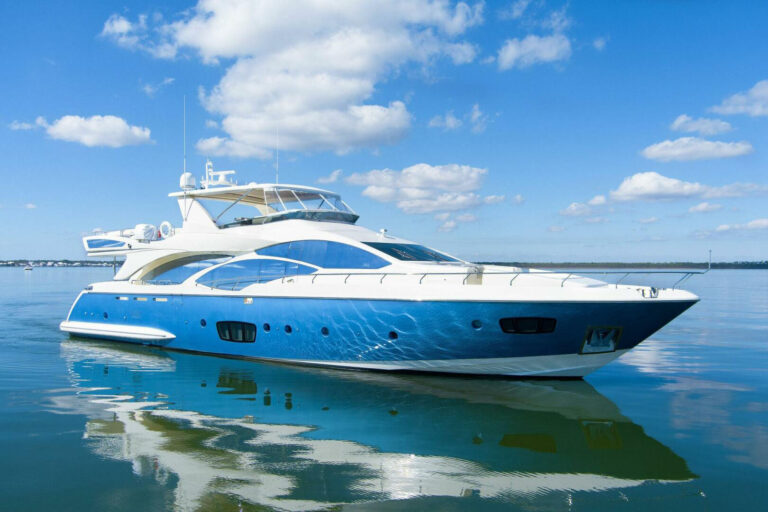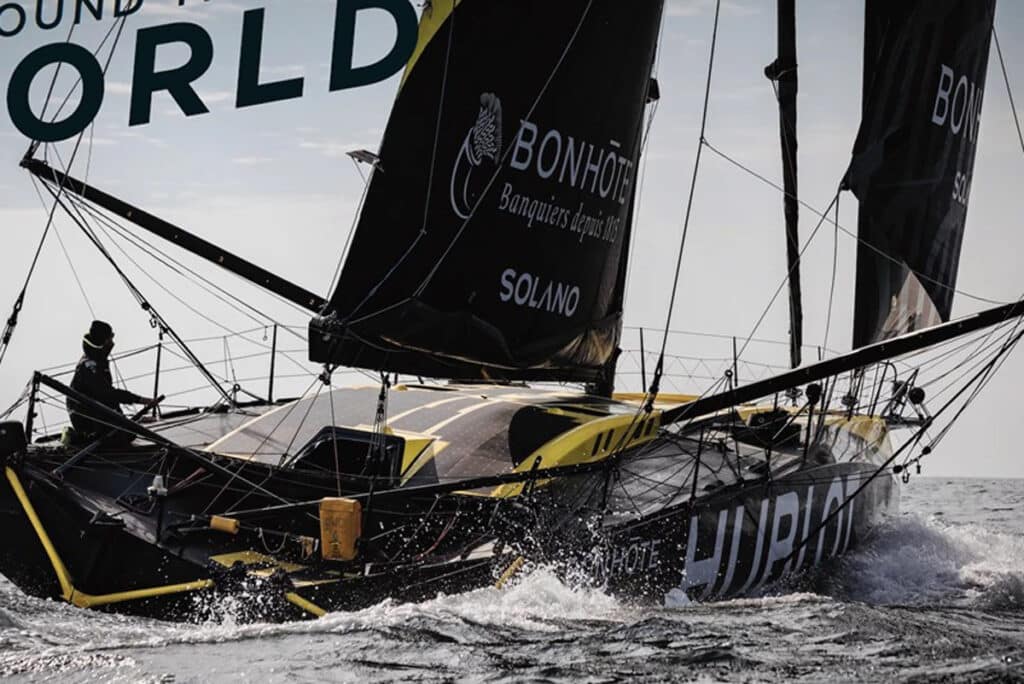
It is a calm day with six knots of breeze on the water in the bay outside Lorient in Brittany and Alan Roura’s IMOCA 60 racing yacht is easily matching the wind speed as it sails on a beam reach. However, a boat like this is not built for leisure, the Swiss sailor is entered for the next Vendée Globe – a round-the-world, solo, non-stop and without assistance race – in late 2024, an event that is considered ‘the Everest of the Seas’.
It will be Roura’s third circumnavigation in the race (held every four years) having first entered it as a mere 21-year-old in 2016 with minimal budget and the oldest IMOCA 60 in the fleet. He achieved a creditable twelfth place out of 29 starters. The last race was a war of attrition, with eight of the 33 entries retiring and one lost at sea (more of which later). For the next Vendée Globe, he acquired in late 2021 British skipper Alex Thomson’s former Hugo Boss boat, a revolutionary design that was built in Britain and designed in collaboration with Thomson’s team and French naval architects VPLP. Launched in 2019, the 60ft-long, glossy, black carbon-fibre yacht features state-of-the-art hydrofoils and solar panelling on the deck so that it sails without using fossil fuels to power the onboard systems like computer navigation and communications. To build and prepare that boat new today Roura estimates would cost €8 million. Unusually the cockpit is completely enclosed to protect the skipper from the forces of the Southern oceans, which Roura admits is taking some adjusting to. “The idea of living and sailing inside is very different, but everything is well thought out,” he says. Coach roof windows give him a view of the sails, but he is having to bulk up physically for the sail changes – they are immensely heavy.
The boat was designed around Alex Thomson and Roura has a slighter, wirier build, but is nimble and super-fit. He has a lot of mental as well as physical adjustments to make for such an evolutionary boat.
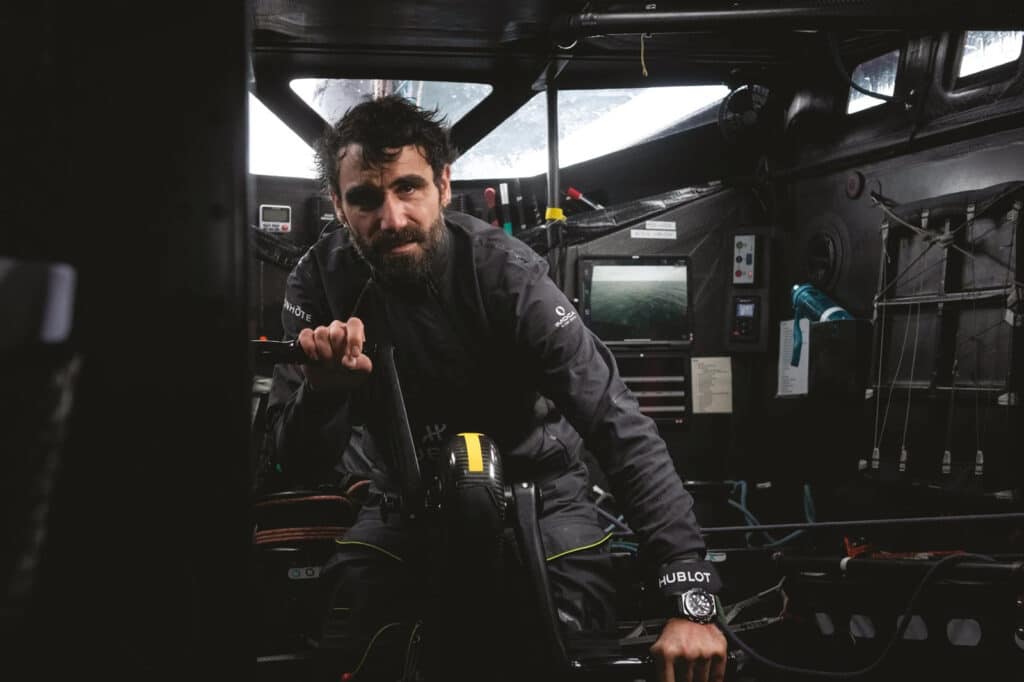
“You can be the best sailor in the world, but you have to hold the race mentally, anything can happen, so I must believe that I will cross the finishing line,” he says with determination. “Some days you can feel really good and the next day you may break something, and the race falls apart. When you begin a race, you realise that any minute can be your last one.”
This very nearly happened to Kevin Escoffier in the 2020 Vendée Globe when his IMOCA 60, PRB, snapped in two and sank in the South Atlantic. His boat’s EPIRB (emergency position-indicating radio beacon) was triggered, but it was 11 hours before fellow sailor Jean Le Cam, who was 20 miles away, was able to rescue him. In that time, no one knew if he had survived. “It was horrendous: I think all the skippers were crying because we were the only guys to understand what Kevin was going through,” says Roura. “When you hear someone is lost at sea you know what he is thinking, and that it can happen to any of us. Jean (Le Cam, a highly experienced veteran) was the best to rescue him.”
Dealing with loneliness is another factor of these round the world races, but Roura, a cheerful character with a ready smile, seems fine with this: “it’s normal to miss family and friends, but two or three days before the finish you suddenly get really stressed about being amongst people again.” He remembers the last Vendée Globe beginning and ending during Covid restrictions – there was no one to wave him off or greet him on his return. “I didn’t want to hear the world news while I was sailing, just news about family and friends, and so as I was sailing up the channel to Sable d’Olonne (the base for the race) and saw it lined with police, I realised it was the same as it had been three months ago only worse, and fleetingly thought ‘I want to go back to sea’.”
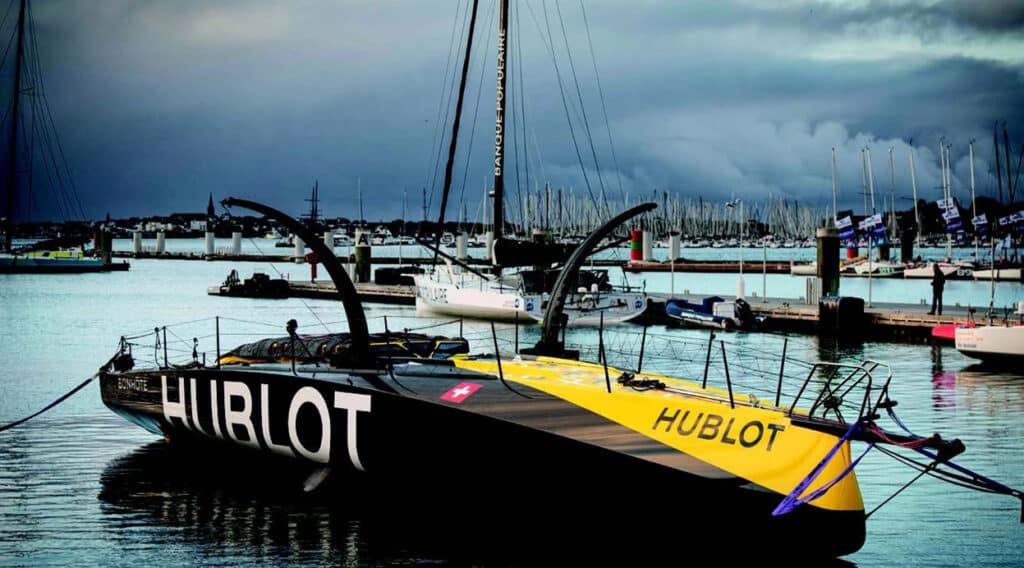
Roura has a two-year-old daughter with his wife Aurelia, who is also head of communications for his team, so they are in daily contact. Aurelia admits however that Roura sometimes gets frustrated and demands to speak to his ‘wife’ and not his ‘head of comms’, but they message each other privately daily. It is not just the physical and mental preparation for the Vendée Globe that is tough, skippers must find sponsors for their campaigns. Roura’s investors (the boat is rented for the campaign) bought the boat the same day that his title sponsor, Swiss watchmaker Hublot, signed the contract. Hublot is best known for its football sponsorship but has previously sponsored Swiss America’s Cup boat Alinghi and the Ocean Race in the past. In fact, the case of the brand’s classic Big Bang watch design is based on the shape of a ship’s porthole, and it will launch a limited edition piece for the next Vendée Globe.
Roura, who was raised on a boat on Lake Geneva and spent an itinerant 11 years of his childhood until he was 19 sailing all over the world with his parents and siblings, explains that Hublot’s headquarters in Nyon (just outside Geneva) is five minutes from where his parents now live. “I would drive past it every day and vowed that one day Hublot would be my sponsor,” he says. “In fact, we were in touch for four or five yearsbefore this happened. I like that the brand is young in its way of thinking and the way it sees the future.”
As the first sponsor, Hublot gets bigger branding on the sails and hull, “but it is not just about money, it is about trust too,” says Roura. However, when the boat insurance is €360,000 per annum, added to which the boat rental and team salaries have to be paid, he needs other sponsors as costs amount to more than €2m per annum. In the past few months he’s signed up private Swiss bank Bonhôte and Swiss transport firm Solano and is actively pitching for more. A lack of funds can cripple a campaign before it gets to the start line. Meanwhile, Roura entered the Vendée Arctique (stopped midway at Iceland) in June and for the Route de Rhum to Guadeloupe in November – all qualifiers for the Vendée Globe in 2024 – and he plans to enter the British Fastnet next year. In between these, the sea trials, training and sponsorship commitments will keep the skipper very busy.

